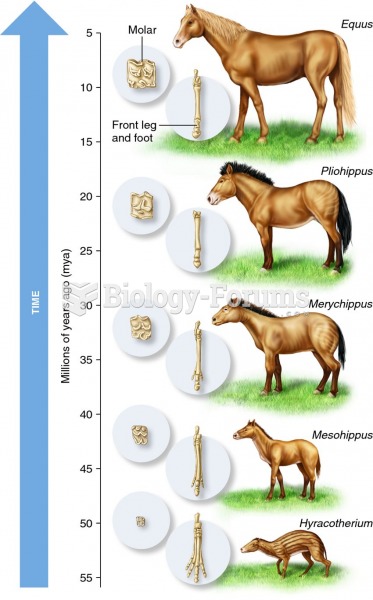|
|
|
The first documented use of surgical anesthesia in the United States was in Connecticut in 1844.
Asthma-like symptoms were first recorded about 3,500 years ago in Egypt. The first manuscript specifically written about asthma was in the year 1190, describing a condition characterized by sudden breathlessness. The treatments listed in this manuscript include chicken soup, herbs, and sexual abstinence.
Signs and symptoms of a drug overdose include losing consciousness, fever or sweating, breathing problems, abnormal pulse, and changes in skin color.
The horizontal fraction bar was introduced by the Arabs.
The term bacteria was devised in the 19th century by German biologist Ferdinand Cohn. He based it on the Greek word "bakterion" meaning a small rod or staff. Cohn is considered to be the father of modern bacteriology.
 The first commercially successful typewriter, manufactured in quantity beginning in 1874, surely fue
The first commercially successful typewriter, manufactured in quantity beginning in 1874, surely fue
 This unit is applying smoke to the fuel tank through an adapter and the leak was easily found to be ...
This unit is applying smoke to the fuel tank through an adapter and the leak was easily found to be ...





